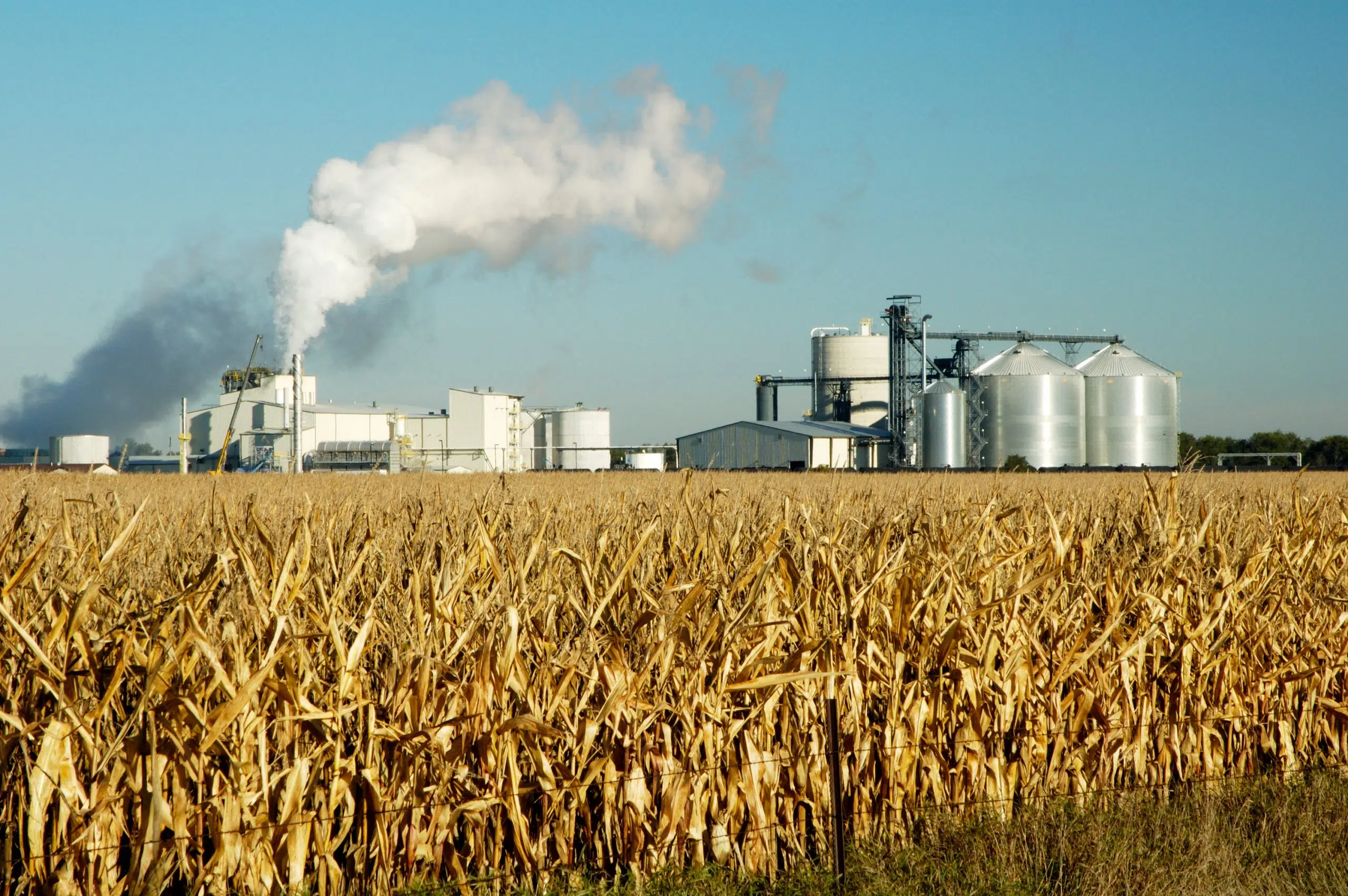
An ethanol production plant in South Dakota. Adobe Stock photo via PNS.
BISMARCK, N.D. (KELO.com) — The list of North Dakota counties voicing concerns about a proposed carbon-emissions pipeline is growing longer. Several are now on record opposing the possibility of using eminent domain against property owners.
Summit Carbon Solutions wants to construct a multi-state pipeline to capture carbon emissions from ethanol plants and store it underground in North Dakota. The company is trying to get landowners’ permission to build.
But Richland County’s Todd McMichael is leading a movement in case eminent domain is used. His county has adopted a resolution opposing such action.
He acknowledged it’s non-binding, but said it could influence state regulators.
“What the resolution does, and what we have seen from the past,” said McMichael, “is that the Public Service Commission will really study what’s going on out there.”
McMichael, who owns a farm along the proposed route, said landowners shouldn’t be legally forced to surrender property for a project he feels is motivated by corporate profit.
Five counties in the state have approved these resolutions. Summit argues it remains focused on voluntary contracts with residents, and that its project will drastically cut emissions from the ethanol industry.
McMichael said even if the company touts open communication with landowners, he worries that approach won’t last unless more residents make their feelings known about the project.
“I do feel that eminent domain could be a plausible action,” said McMichael, “if either I don’t agree to their dollar amounts, or I just continue to say no.”
Eliot Huggins, field organizer with the Dakota Resource Council, said his group isn’t opposed to all aspects of carbon sequestration. But he said he thinks the company is rushing an unproven approach in areas not ready to embrace it.
“Climate solutions should be solutions that benefit, you know, all communities,” said Huggins. “In rural America, urban America, everywhere. And so, we don’t really think a climate solution should be taking landowners’ land without them consenting to it.”
There’s mixed research on the effectiveness of carbon storage.
And while some experts say it does show promise, there are lingering safety concerns. Local opponents point to the rupture of an underground pipeline in Mississippi in 2020.
(Mike Moen, PNS, contributed this report.)




